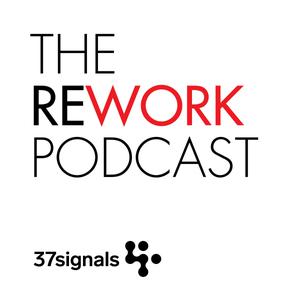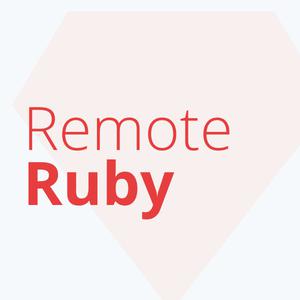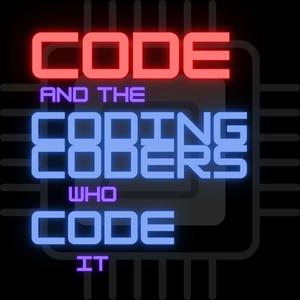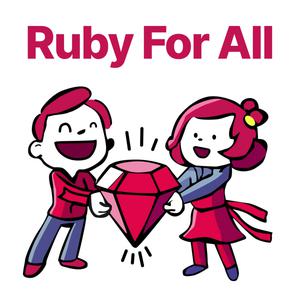
The Rails Changelog
Emmanuel Hayford
Stay in the loop with development news around Ruby on Rails and Ruby.
- 1 hour 4 minutes029: Tuning Ruby on Rails App Performance with Jean Boussier
In this episode, Jean Boussier and I dive deep into performance optimisation for Ruby on Rails applications. From diagnosing common bottlenecks and mastering advanced caching techniques to leveraging YJIT, jemalloc, and server concurrency models, we explore practical strategies for scaling apps efficiently. We also discuss key metrics for monitoring production performance, cost-effective observability, and modern Rails patterns to embrace or avoid. Perfect for developers looking to take their Rails performance game to the next level!
Ruby and Rails Conference: wroclove.rb 11–13.04.2025 Wrocław, Poland
Try Mailtrap for free
Rails Guide: Tuning Performance for Deployment
Nate Berkopec: The Rails Performance Workshop23 January 2025, 11:35 pm - 33 minutes 29 seconds028: Discussing Ruby's Data class, some Ruby quirks with Victor Shepelev
In this episode, I’m joined by Victor Shepelev, a member of the Ruby Core team and the author of Ruby’s new Data class. We dive into why Ruby needed the Data class, exploring how it fits into the language and enhances Ruby’s capabilities. Victor also shares insights on some other exciting Ruby features, including Numbered Block Parameters, the "it" keyword, and the growing role of functional programming in Ruby.
Beyond coding, Victor has a unique perspective as he’s officially enlisted in the Ukrainian Army. I had the chance to talk with him about what it’s like to balance life as a Rubyist and a soldier, and we discuss meaningful ways to support him and Ukraine.
Try Mailtrap for free
Ruby Data Class
Ruby Changes
Support Ukraine
Useless syntax sugar”: Numeric block parameters8 November 2024, 1:12 pm - 52 minutes 50 seconds027: Migrating a Rails Monolith from MySQL to Trilogy with Adrianna Chang
In this episode, I sit down with a seasoned Rails engineer to dive into the technical intricacies and community-building work that power the Ruby ecosystem. Adrianna, who currently works as an engineer at Shopify shares insights into their role, their experience with the vibrant WNB.rb community, and what goes into organising meetups focused on all things Ruby and Rails.
We take a deep dive into Trilogy, Shopify’s custom implementation of the MySQL protocol. Adrianna unpacks the motivation behind developing Trilogy, the design choices that distinguish it from the traditional libmysqlclient library, and the trade-offs they faced. We also discuss the challenges of migrating from MySQL 2 to Trilogy, particularly around compatibility and maintaining a seamless CI/CD pipeline throughout the process.
Listeners will learn about the performance benefits Trilogy offers, how Shopify overcame the obstacles of database migration, and the future roadmap for Trilogy’s development in Rails. Finally, Adrianna reflects on the books that have been instrumental in shaping their career, offering valuable recommendations for developers at all levels.
Try Mailtrap for free
Migrating Shopify’s Core Rails Monolith to Trilogy - Rails World 2023
Trilogy
WNB.rb2 November 2024, 9:01 am - 33 minutes 59 seconds026: Exploring Rails' Default Debugger with Stan Lo
The debugger you didn't know you needed. Ruby comes with an official debugger called Debug, which is now included in new Rails applications. Surprisingly, many Rails developers are still unaware of just how powerful this tool is. In this episode, Stan and I dive into its capabilities, exploring how it enhances the debugging process and makes troubleshooting more efficient.
10 October 2024, 5:22 pm - 49 minutes 32 seconds025: Rails, Compilers & Profilers with Aaron Patterson
As you'd expect, any conversation with Aaron inevitably involves Ruby, Rails, compilers, and profiling. In this episode, we delve into all these topics. Enjoy!
18 July 2024, 5:00 am - 50 minutes 35 seconds024: Structuring Rails Apps with Matt Swanson
In this conversation, Matt discusses his podcast Yagny FM and the motivation behind it. He also talks about his approach to open source contributions within the Rails ecosystem. Matt shares his thoughts on Hotwire and the misconception of using all its features. He discusses the trade-offs between basic conditionals and feature management tools in terms of long-term maintainability and scalability. Matt also touches on the use of feature flags and how to balance simplicity with increasing complexity over time. Lastly, he briefly mentions his experience with background jobs and the potential move to Solid Queue. In this conversation, Matt Swenson discusses considerations for choosing job processors in Rails applications, the benefits of using ViewComponent for front-end development, and his experience working at Arrows, a B2B SaaS company.
Matt's tweet:
"IMO a Hotwire app should be like 85% Drive, 10% Frames, 5% Streams -- often I see people (including articles/guides) that have it almost completely flipped."Feature Flags: The stupid simple way to de-stress production releases
Solid Queue Consideration
Arrows27 June 2024, 8:30 pm - 1 hour 15 minutes023: Solid Queue Internals with Rosa Gutierrez
In this interview with Rosa Gutierrez of 37signals, Rosa elaborates on her work, particularly her contributions to Solid Queue and its implementation alongside Active Job. She describes the motivations behind developing Solid Queue, addressing performance issues with existing systems like Resque, and transitioning some workloads to database-backed queues. Rosa also explains the technical details of Solid Queue's architecture, including supervisor and dispatcher roles, how it handles job prioritization, concurrency, and the challenges of ensuring performance in high-load environments. Essential advice is provided on when to use or avoid Solid Queue, depending on specific needs and existing setups.
20 June 2024, 5:00 am - 29 minutes 56 seconds022: Discussing Rails Camp USA with Bobbilee Hartman
In this episode, Bobbilee, a pivotal figure in the Rails community, shares the inspiring journey behind Rails Camp West. Bobbilee talks about the origins and motivations for creating Rails Camp West, rooted in her experiences at big tech conferences and her desire to create a more intimate, laid-back environment for tech enthusiasts. She highlights the first camp in 2014 and how it has grown into a beloved annual event with a 75% return rate among attendees, showcasing the community’s strong bonds.
Bobbilee delves into the distinctions between Rails Camp West and the original Australian Rails Camp, emphasising the intentional smaller scale of her gatherings to foster deeper connections and more effective networking among participants. Both camps, though different in execution, share a spirit of collaboration and passion for Rails and Ruby.
13 June 2024, 5:00 am - 1 hour 21 minutes021: From Active Record Business Logic to DDD & Events with Andrzej Krzywda
Andrzej Krzywda discusses event sourcing, event-driven architecture, and Domain-Driven Design (DDD) in the context of Ruby on Rails applications. He explains the concept of bounded contexts and how they relate to communication between different modules. He also shares insights on when and why to apply DDD to Rails applications, particularly in cases where the application becomes complex and difficult to maintain. Andrzej explores the challenges and benefits of migrating an existing Rails app to an event-driven architecture and highlights advanced event sourcing concepts such as snapshotting, projections, and versioning. In this conversation, Andrzej Krzywda discusses event sourcing and DDD in Rails applications. He explains the concepts of snapshotting and projection, which are techniques used to optimize performance and retrieve specific data from event streams. Andrzej also delves into the challenges of event versioning and how it can be managed in Rails applications. Additionally, he shares insights about the wroclove.rb conference, its history, and its focus on advanced and deep technical topics.
Takeaways
Event sourcing is a persistence mechanism that persists all the little changes that happen to a specific object, while event-driven architecture is a way of building software modules that communicate with events.DDD involves splitting a system into contexts or domains and using events to communicate between them. It can be applied to Ruby on Rails applications, particularly in cases where the application becomes complex and difficult to maintain.
Migrating an existing Rails app to an event-driven architecture can help address issues with large classes, complex associations, and lack of modularity.Advanced event sourcing concepts such as snapshotting, projections, and versioning can be used to optimize performance and manage data integrity in event-driven applications. Snapshotting and projection are techniques used in event sourcing to optimize performance and retrieve specific data from event streams.
Event versioning is a challenge in event sourcing, but it can be managed by introducing new event versions and implementing upcasters to convert old events to new versions.
wroclove.rb is a Ruby and Rails conference in Wrocław, Poland, that focuses on advanced and deep technical topics.
The conference aims to inspire, educate, and challenge the status quo in the Ruby and Rails community.
Rails Event Store and Eventide are two libraries that facilitate the implementation of event-driven architectures in Rails applications, each with its own philosophy and approach.wcrolove.rb Ruby and Rails Conference
RailsEventStore
Arkency
Rails Architect Masterclass
[Video] Event Sourcing Demystified: A Simple-To-Understand Guide7 March 2024, 10:47 pm - 1 hour 6 minutes020: Andy Croll & Ufuk Kayserilioglu Uncover RailsConf 2024 Details
The conversation covers various aspects of RailsConf, including its mission, organization, and selection process for talks. The chapters delve into the background of the participants, the role of Ruby Central in organizing RailsConf, and the significance of the conference in the Ruby and Rails communities. The discussion also explores the unique features of RailsConf 2024, such as the community day and hack day, as well as the selection process for talks and the responsibilities of the program committee. Additionally, the conversation touches on the criteria for choosing conference locations and the process of selecting keynote speakers. In this conversation, Emmanuel Hayford interviews Andy Croll and Ufuk Kayserilioglu about their experiences with conferences like RailsConf and Brighton Ruby. They discuss the acceptance and rejection process for conference speakers, the origins and purpose of Brighton Ruby, the importance of personal interaction at conferences, the dynamics of partnering with hotels, the sponsorship opportunities for RailsConf, and the benefits of attending conferences for personal and professional growth.
Takeaways
- RailsConf is a long-running conference that celebrates the Rails framework and brings together the Ruby and Rails communities.
- Ruby Central plays a crucial role in organizing RailsConf and other Ruby-related projects, maintaining and supporting the Ruby commons that the community depends on.
- RailsConf 2024 will feature a community day and hack day, providing opportunities for collaboration, learning, and contributing to open source projects.
- The selection process for talks at RailsConf involves a program committee that ranks and evaluates proposals based on fit, quality, and presentation skills.
- RailsConf aims to have a diverse range of speakers and topics, with a focus on building with Rails and showcasing different ways of using the framework.
- The location of RailsConf changes each year, with a focus on accessibility and transportation options for attendees.
- Keynote speakers at RailsConf are selected based on their relevance to the conference theme and the community's interests.
- The conference selection process involves a balance of reaching out to potential speakers and reviewing submissions through a call for proposals (CFP). Conference rejections should not be discouraging, as there are limited slots and many applicants. Persistence is key.
- Brighton Ruby is a single-track, single-day event held in Brighton, UK, that provides a friendly and intimate atmosphere for Ruby and Rails developers.
- First Ruby Friend is a mentorship program that pairs experienced developers with early-career developers to provide guidance and support.
- Partnering with hotels allows conferences to secure room blocks for attendees, ensuring convenient and affordable accommodation.
- Sponsorships for RailsConf offer companies the opportunity to support the Ruby and Rails community while gaining visibility and networking opportunities.
- Attending conferences like RailsConf and Brighton Ruby provides valuable opportunities for personal and professional growth, including building relationships, gaining insights from talks, and experiencing the sense of community.
15 February 2024, 11:14 pm - 44 minutes 5 seconds019: Exploring RubyGems with Jenny Shen
Senior Developer Jenny Shen from Shopify joins me to discuss RubyGems. In this episode, we unravel the intricate mechanics of dependency resolution within RubyGems, exploring topics such as compact indexes and more. Our discussion extends to the paramount issue of security, where we examine the proactive measures undertaken by the RubyGems team to fortify gems for every Ruby programmer.
PubGrub version solving algorithm
The New Rubygems Index Format by Andre Arko
Trusted Publishing on RubyGems.org8 February 2024, 10:13 am - More Episodes? Get the App
Your feedback is valuable to us. Should you encounter any bugs, glitches, lack of functionality or other problems, please email us on [email protected] or join Moon.FM Telegram Group where you can talk directly to the dev team who are happy to answer any queries.
 Rework
Rework
 Remote Ruby
Remote Ruby
 Code and the Coding Coders who Code it
Code and the Coding Coders who Code it
 Ruby for All
Ruby for All
 The Ruby on Rails Podcast
The Ruby on Rails Podcast